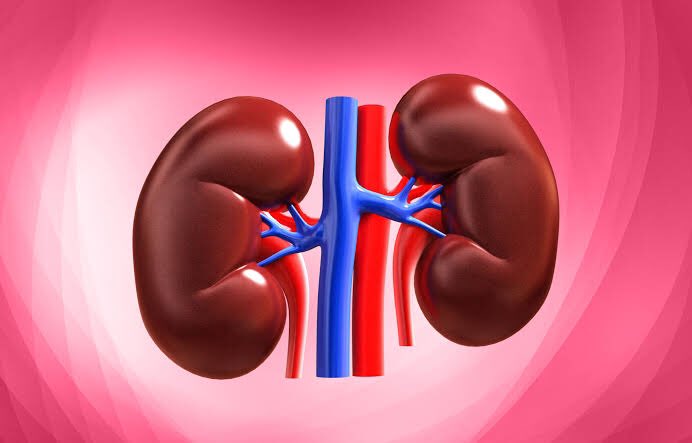The Importance of Early Detection and Treatment for Tropical Acute Kidney Injury(TAKI)
People who reside in tropical climates are susceptible to tropical acute kidney injury (TAKI), a dangerous medical illness. The abrupt development of renal failure, which can be fatal if unchecked, is what distinguishes it. For the management of TAKI and the prevention of significant consequences, early identification and immediate treatment are essential.
Causes of TAKI:
A number of variables, including infections, dehydration, exposure to chemicals, and climate change, contribute to tropical acute kidney injury (TAKI). In tropical areas, TAKI is frequently brought on by infectious disorders such as dengue fever, leptospirosis, and malaria. Acute renal injury can result from certain disorders’ direct kidney damage. These infections can also lead to severe dehydration, which can exacerbate TAKI.
Dehydration poses a serious danger for TAKI, particularly if access to clean drinking water is scarce. Due to inadequate infrastructure and sanitation, access to clean drinking water may be restricted in tropical areas. Dehydration may result from this, which may increase the likelihood of acute renal injury by impairing kidney function.
Another important risk factor for TAKI is exposure to pollutants. High amounts of industrial and agricultural pollutants are present in many tropical areas, which may help TAKI grow. Acute renal injury can result from direct damage to the kidneys brought on by toxic exposure. The development of TAKI can also be aided by the systemic consequences of toxicity exposure, such as oxidative stress and inflammation.
The occurrence of TAKI has also been connected to climate change. Dehydration and toxic exposure are risks that can result from extreme weather conditions like heat waves and floods. Additionally, as temperatures rise, more people may contract viral illnesses like dengue fever, which can harm the kidneys directly. The availability of safe drinking water may also shift as a result of climate change, which would increase the risk of TAKI and dehydration.
Prevention of TAKI:
Tropical Acute Kidney Injury (TAKI) can be prevented by taking proactive measures to reduce the risk of exposure to the causes of the condition. Here are some key steps that can be taken to prevent TAKI:
- Remain hydrated: Staying well hydrated is essential for preventing TAKI. Make sure you’re getting enough fluids if you’re in a tropical area with limited access to clean drinking water. The best option is water, but other liquids like coconut water and sports drinks can also be useful for rehydrating.
- Avoid being exposed to chemicals: TAKI can be exacerbated by toxins from industrial and agricultural processes. Although limiting exposure to toxins might be difficult, there are precautions that can be done. When working with chemicals, this entails donning protective clothes, minimizing exposure to air pollution, and avoiding tainted water sources.
- Maintain proper cleanliness since TAKI can be brought on by infectious disorders including dengue fever, leptospirosis, and malaria. Keeping yourself clean can help to lower your chances of getting sick. This entails performing frequent hand washing, avoiding close contact with ill persons, and receiving an infection-prevention vaccine.
- Address climate change: An rise in the prevalence of TAKI has been connected to climate change. The circumstances that lead to TAKI can be avoided by reducing greenhouse gas emissions, encouraging sustainable agricultural methods, and enhancing the availability to clean drinking water. Early warning systems for extreme weather conditions can also assist communities in catastrophe preparedness and damage reduction.
Treatment for TAKI
In order to address the underlying causes of the problem and stop additional kidney damage, TAKI therapy entails swift and forceful action. The primary goal of therapy is to swiftly return kidney function to normal. The severity of the ailment and the underlying cause will determine the particular therapy strategy.
Antibiotics may be recommended to treat the underlying infection when TAKI is brought on by it. Furthermore, intravenous fluids may be given to rehydrate the body and enhance kidney performance. In more extreme situations, dialysis could be necessary to get rid of the body’s extra fluid and waste.
Removing the person from the source of exposure is the first step if exposure to toxins is the cause of TAKI. Dialysis could also be required in extreme circumstances to get the poisons out of the body. Additionally, supportive treatments such as intravenous fluids and electrolyte replenishment may be given.
Rehydrating sufferers of severe dehydration is an essential part of care. This may entail giving oral rehydration fluids, intravenous fluids, or a mix of the two.
In addition to these therapies, it could be important to address other symptoms including pain and fever. It’s critical to get medical help right away if you think you could be suffering from TAKI.
Conclusion:
In conclusion, Tropical Acute Kidney Injury (TAKI) is a serious medical condition that can lead to renal failure and even death if left untreated. The causes of TAKI include infections, dehydration, exposure to toxins, and climate change. To prevent TAKI, it is essential to take proactive measures such as staying hydrated, avoiding exposure to toxins, practicing good hygiene, and addressing climate change. Early detection and treatment are also critical in managing TAKI and preventing severe consequences.
If you are experiencing symptoms of TAKI, such as decreased urine output, swelling in the legs, and shortness of breath, it is essential to seek medical attention immediately. For people in Pune and surrounding areas, puneurologist offers expert neurology and nephrology services, including diagnosis and treatment of TAKI. Don’t hesitate to contact a medical professional if you suspect you may have TAKI or any other medical condition. Stay proactive and stay healthy.

